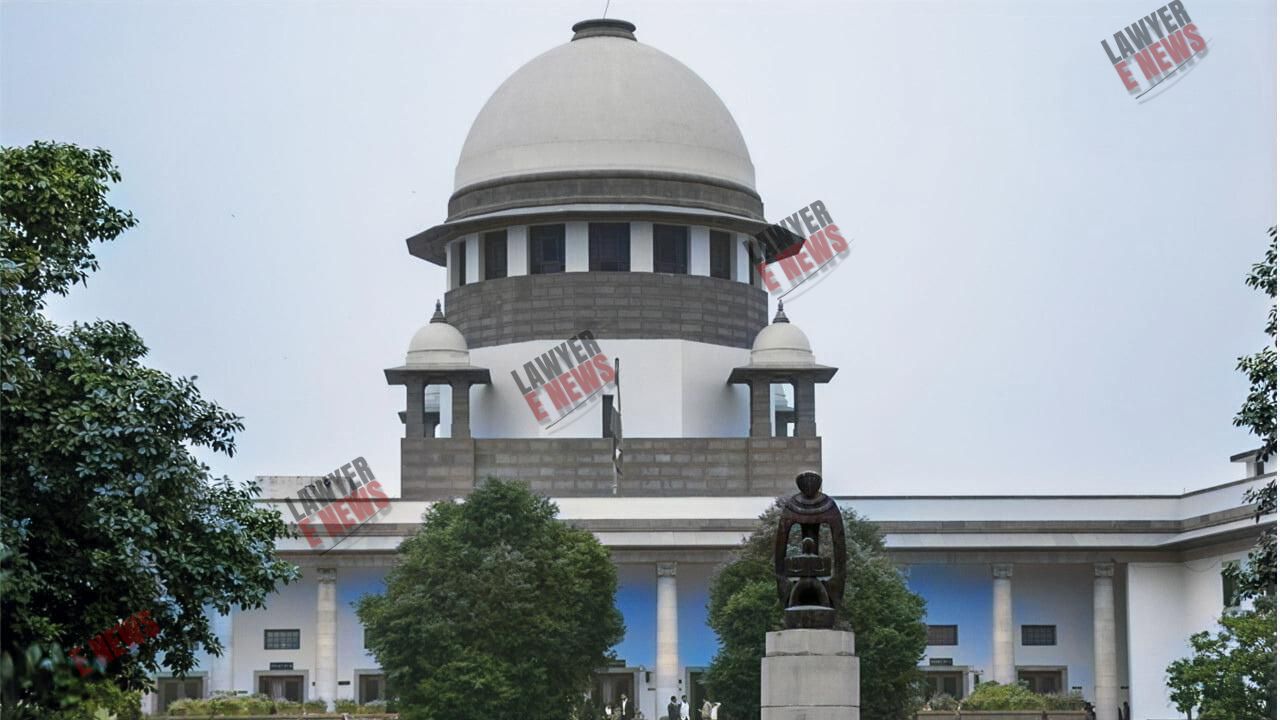-
by Admin
16 February 2026 1:47 PM



“When no one except the complainant’s own family was present, the ingredients of the SC/ST Act simply don’t get attracted,” held the Supreme Court on April 7, 2025, while acquitting five appellants convicted under Section 3 of the SC/ST (Prevention of Atrocities) Act and Section 447 of the Indian Penal Code.
Delivering the judgment the Bench of Justices K. Vinod Chandran and Sudhanshu Dhulia found that the entire prosecution case rested on the testimony of related witnesses, riddled with contradictions, and devoid of any independent corroboration or public presence.
The apex court made it crystal clear:
“There is no scope for finding either clause (r) or (s) of Section 3(1) of the SC & ST Act since PW-1 has categorically stated that there was no member of the public present at the time the incident occurred.”
“The Complaint Says House Trespass, Witnesses Say Field – Where Is the Consistency?” Asks Supreme Court
The FIR lodged in 2005 had accused the appellants of breaking into the complainant’s locked house, abusing them by caste, threatening them, and committing theft. However, during trial, not a single witness mentioned house trespass. Instead, the scene shifted to a field—creating glaring inconsistencies that the courts below failed to acknowledge.
The Supreme Court remarked that “there are gross inconsistencies insofar as the complaint and the oral evidence... The place of occurrence was stated to be the house, while all the witnesses spoke of the alleged incident having occurred in the field, which was the disputed land.”
The Bench expressed concern that courts had relied on such weak and contradictory evidence to convict: “As far as the house trespass is concerned, the oral evidence does not support it. The FIR spoke of breaking the lock of the house, yet no witness even mentions it.”
“Public View Is Not a Family Gathering – Caste Insult Must Be Proven to Be Made in the Presence of Others”
At the heart of the prosecution's case was the allegation that caste-based insults were hurled at the complainant and her family. But as the Court pointed out, all the witnesses were closely related and no independent or public witness was cited.
The Court underlined a fundamental requirement under the SC/ST Act: “To attract clause (r) or (s), the insult must occur in any place within public view... If only the complainant, his wife, brother and nephew were present, then the requirement of 'public view' is simply not met.”
The Court also noted that the terms of abuse cited by each witness differed, and the supposed derogatory language used was inconsistent. In fact, one witness claimed they were called "Adivasis", which is in itself not an insult but a legal identity, further undermining the credibility of the charge.
“When Witnesses Contradict Each Other, and Themselves – Justice Cannot Be Based on Inconsistencies”
The Bench stressed that criminal jurisprudence cannot tolerate convictions based on vague, conflicting, and uncorroborated testimony—especially in matters where the law demands specific statutory conditions.
Referring to the alleged trespass on the disputed land, the Court said: “There is nothing to indicate that the complainant and her family were forcefully evicted from the disputed land, or that the accused occupied it illegally after possession was delivered on 25.04.2005.”
With that observation, the Court also discarded the application of clause (f) of Section 3(1) of the SC/ST Act, which deals with wrongful occupation or cultivation of land belonging to members of Scheduled Castes or Tribes.
Supreme Court Sets the Record Straight – Conviction Set Aside, Acquittal Restored
In its concluding remarks, the Supreme Court emphatically stated: “On the above reasoning, we find absolutely no reason to sustain the conviction as entered into by the Magistrate’s Court confirmed by the High Court. We set aside the order of the Magistrate as confirmed by the High Court and acquit the appellants herein.”
The Court directed that the bail bonds, if any, executed by the accused shall stand cancelled, and the appeal stands allowed in full.
Date of decision: April 7, 2025
